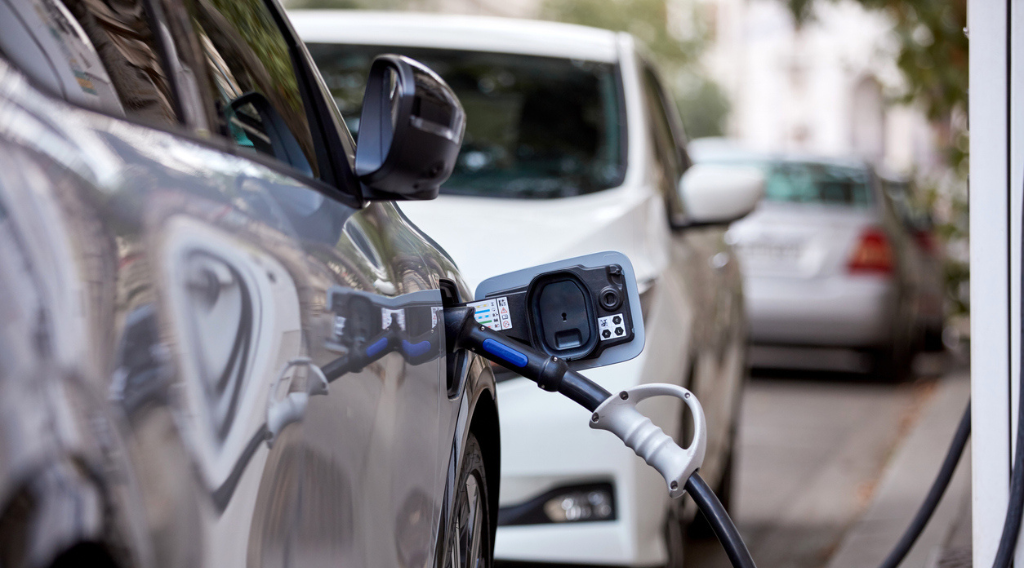
Minnesota legislators and advocates seized a unique opportunity this spring to pass transformative clean energy and climate policy that will jump-start the state’s transition to a lower-carbon economy. The state’s legislative session adjourned on May 22, and it was a busy few months at the Capitol. The state’s historic budget surplus, unified Democrat-Farmer-Labor (DFL) control of state government, and significant federal investments in clean energy set the stage for ambitious policymaking in 2023.
The session demonstrated the power of building coalitions, partnerships, and support over time to be ready for legislative opportunity. Throughout the legislative session, coalitions and partnerships led by the Great Plains Institute advocated for their policy platforms.
By the end of the historic session, we saw progress in many areas—from creating first-time electric vehicle rebates to doubling funding for the Clean Energy Resource Teams to establishing a working group to consider the future of Minnesota’s transportation decarbonization policy.
This post highlights the clean energy wins we’re celebrating across GPI’s programs and with the many partners, legislative champions, and advocates we worked alongside.
Jump-starting vehicle electrification
Throughout the session, Drive Electric Minnesota advocated for priorities related to jump-starting Minnesota’s electric vehicle (EV) market and increasing access to EV charging infrastructure. Drive Electric Minnesota is a partnership of EV champions led by GPI—automakers, auto dealers, electric utilities and cooperatives, local and state government representatives, corporations, and nongovernmental organizations—working to accelerate EV adoption in Minnesota.
This year, Minnesota adopted many of the key policies needed to jump-start the state’s EV market. This includes rebates that will provide up to $2,500 for households looking to buy an electric car and up to $1,500 for the purchase of an electric bicycle, state investments in EV charging infrastructure to increase access to electricity as a transportation fuel, and funding for school districts to switch to electric buses.
For more information about the state’s commitment to EVs this year and how the coalition built support over time, read our Q&A with Drive Electric Minnesota facilitator Brendan Jordan, who is vice president of Transportation and Fuels at GPI.
Increasing the production and use of clean fuels
Two more GPI coalitions—the Bioeconomy Coalition of Minnesota and the Future Fuels Coalition—helped to secure supportive policy to increase the production and use of clean transportation fuels in the state.
The Bioeconomy Coalition of Minnesota supports policy efforts to grow Minnesota’s bioeconomy and position the state as a global industry leader, and the Future Fuels Coalition works to advance a state-level clean transportation standard in the state.
First, the Bioeconomy Coalition supported successful efforts this session to secure a state-level sustainable aviation fuel tax credit for Minnesota. This tax credit will ensure Minnesota has a role to play in the transition to cleaner air travel—it will provide up to $1.50 per gallon of sustainable aviation fuel produced in Minnesota or blended with aviation fuel in the state. Read more about the Bioeconomy Coalition’s legislative outcomes in our legislative recap blog post.
The Future Fuels Coalition has been advocating for a state-level clean transportation standard—also known as a clean fuels policy or a low-carbon fuel standard—since 2021. The clean transportation standard bill introduced this session would be the strongest such standard in the nation, reducing the carbon intensity of Minnesota’s transportation fuels to net zero by 2050.
While that bill has not yet passed, the legislature approved funding for the Minnesota Pollution Control Agency and Departments of Transportation, Commerce, and Agriculture to convene a clean transportation standard working group this summer and fall to consider the next steps for the policy in the state. That process will help to increase broad support for the legislation and answer key policy design questions before the 2024 legislative session.
Supporting local climate action
The GPI-facilitated Minnesota Cities Climate Coalition—a group of mayors and council members leading local climate action across the state—officially launched this session after two years of network building. GPI kept the coalition informed about the many bills introduced this session that support local climate action and secured signatures for letters of support for climate legislation from coalition members.
One significant provision that passed will update the process for adopting the energy code for new commercial buildings—a topic about which GPI has supported local government stakeholder conversations in previous years.
Other items of note that passed that will support local climate action include the State Competitiveness Fund, an increase in the GreenStep Cities program budget, a statewide commercial building energy benchmarking program, grants for local climate action plans, and grants for solar on public buildings.
Securing funding increase for the Clean Energy Resources Teams
Finally, GPI played a leading role in securing a funding increase for the statewide Clean Energy Resource Teams (CERTs) partnership, resulting in a doubling of the partnership’s current dedicated funding. Prior to this year, the legislature had not increased funding for CERTs since 2011. The bipartisan CERTs funding bill had strong support from Greater Minnesota, including freshman lead author Representative Andy Smith from Rochester. CERTs connects “individuals and communities in Minnesota to the resources they need to identify and implement community-based clean energy projects” (GPI is proud to direct the Metro region of CERTs).
Keep up to date with all GPI news by signing up for our monthly newsletter.


